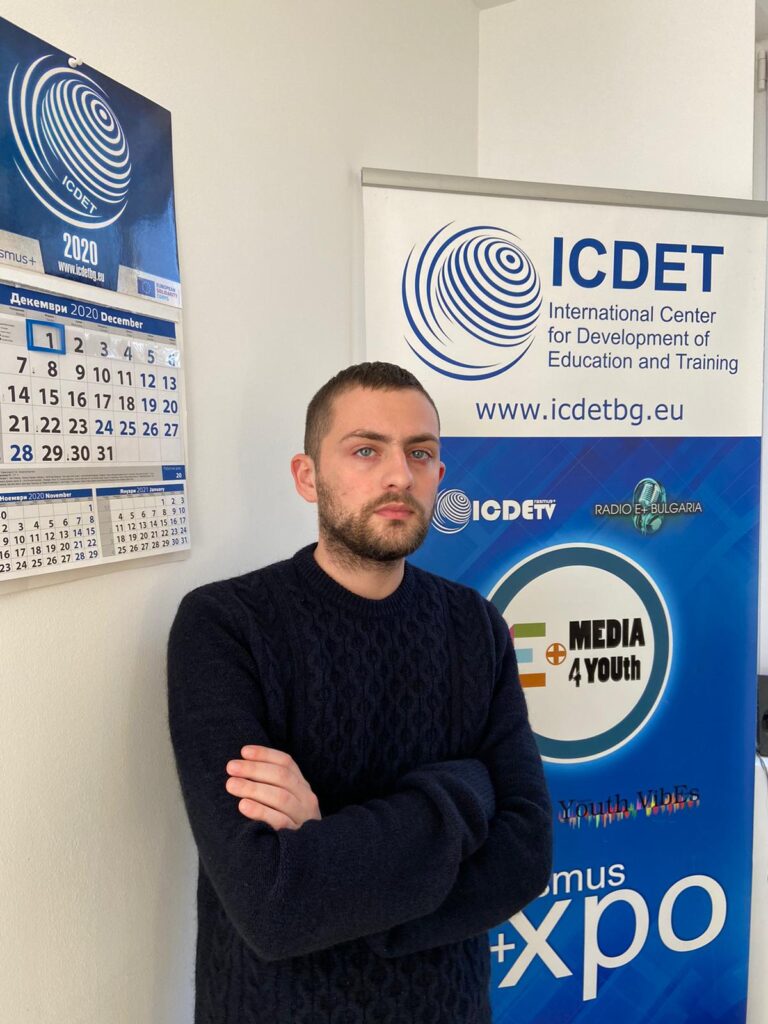09 Feb EU4EU Host Organization experience during COVID- ICDET

Roma, 9 February 2021
The Coronavirus pandemic has taught us that with patience, willpower and technology, we can keep carrying out our work and education. We’ve talked with several trainees over the past months that explained how carrying their EU4EU traineeship was during the delicate sanitary situation, and we learned that despite the pandemic, they took advantage of the experience to learn, improve their english and add new skills to their professional profile.
What about the organizations that hosted these trainees? How did they manage the situation? How did they adapt to the pandemic? We’ve contacted several Host Organizations to ask them about the experience of hosting trainees during these times. The first one on the list is Ivan Tinev, Director of ICDET – International Center for Development of Education & Training, in Sofia, Bulgaria.
ICDET is an “NGO, working in the field of education and training development”, explains Tinev. “We work with young people on an international level and the interns that collaborate with us are usually from the department of Human resources and project management.”
“When the lockdown began, we postponed most of the internships with our trainees to 2021. Later on, when the situation was normalized in the summer, we started hosting interns again. From the beginning we started using online tools such as google drive, and when the situation allowed, we had office meetings. We also organized different shifts in the office so that every intern can come every once in a while to have more support”, explains Tinev.
When the pandemic arrived in Europe, many trainees asked for a remote internship, but “unfortunately we did not accept them, because in our field of work, there is a very important part that must be done in presence”, says Tinev. “We also developed in-arrival training. So each intern has three days of training, in which we explain the projects they will be developing and the methodology”, he says.
“In our field of work, if it’s hard to have physical contact, it’s not the same. That’s why we can’t do a fully remote internship, because the interns never feel the real experience of what we do.”




